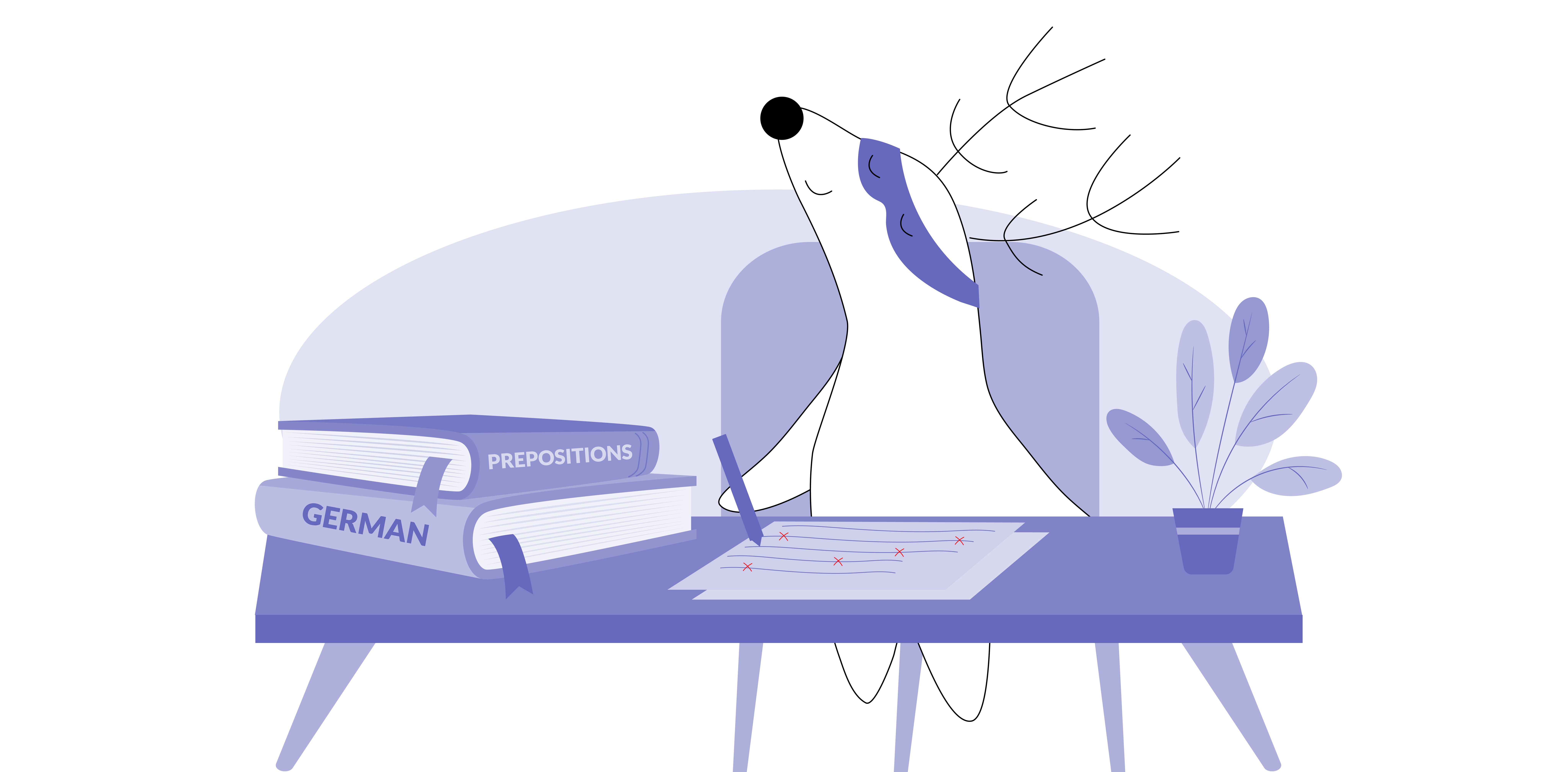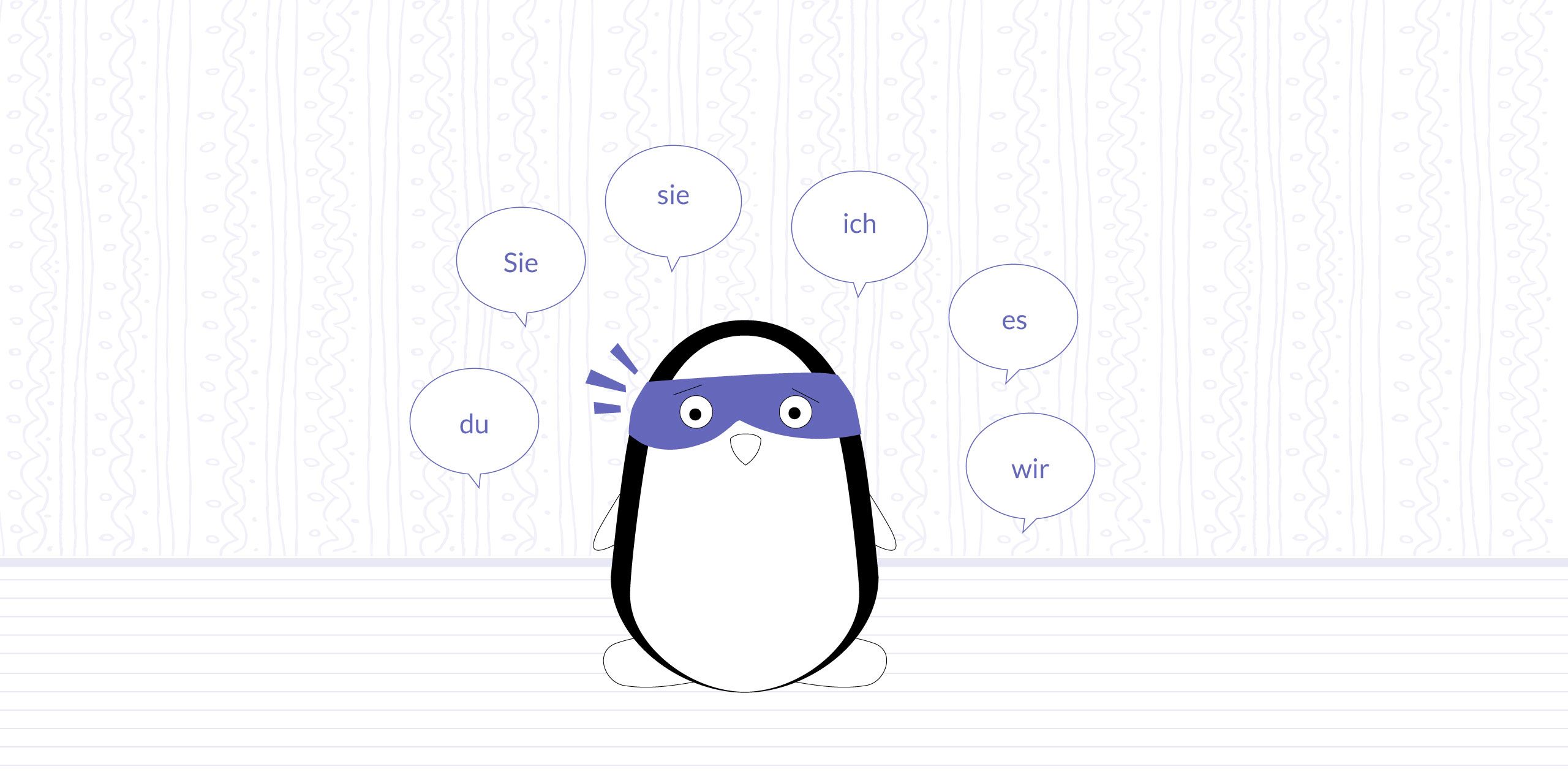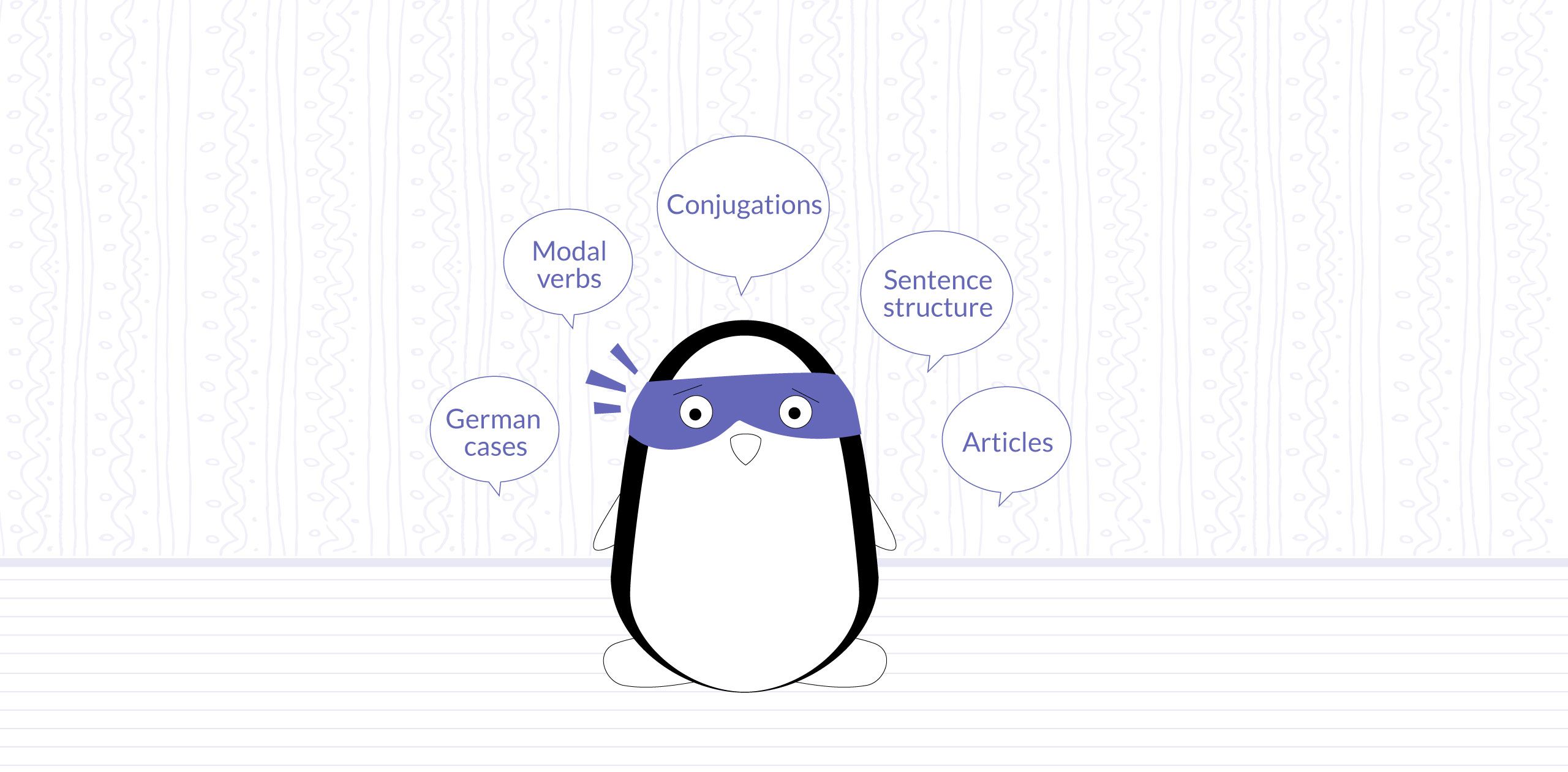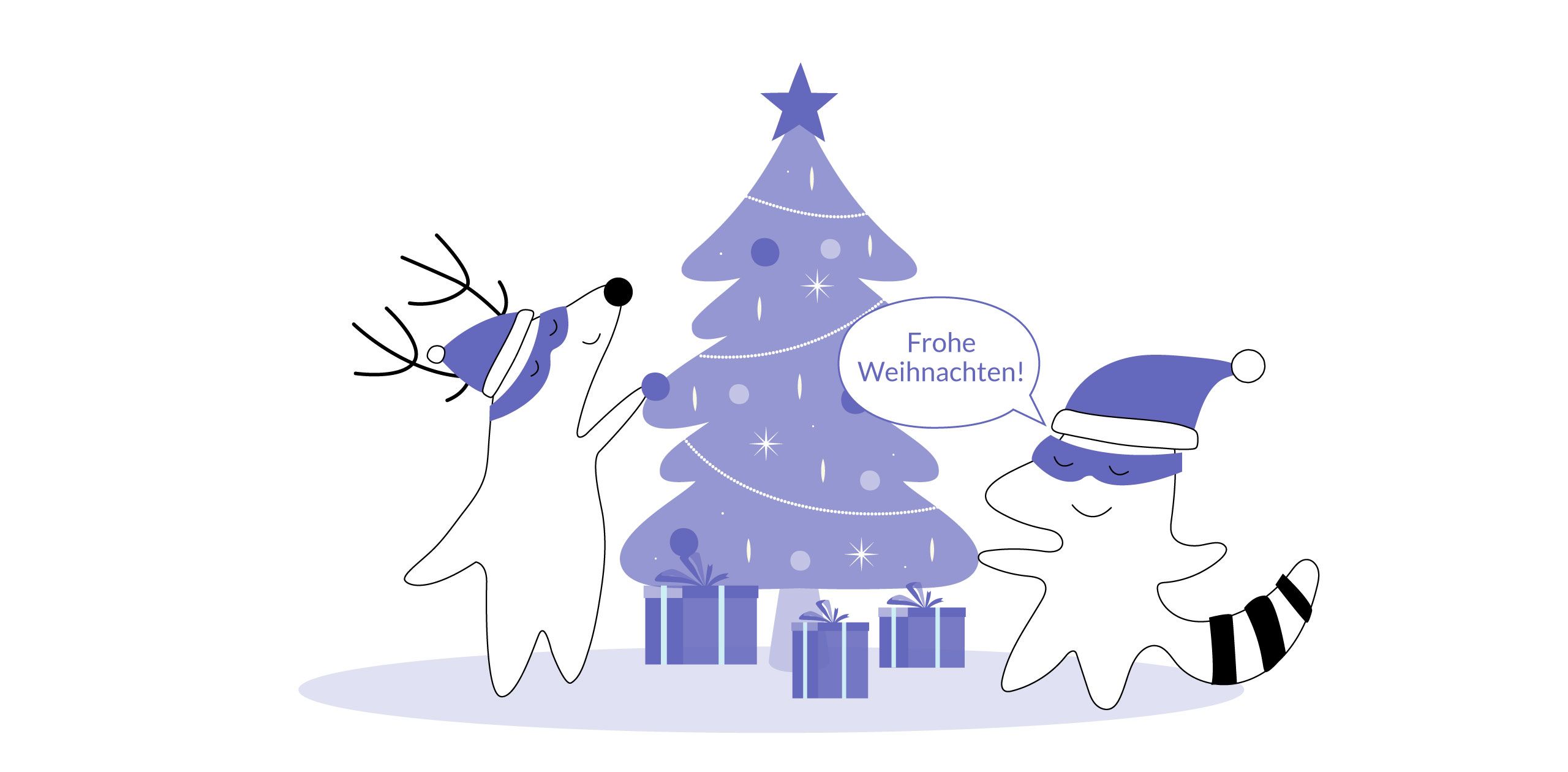
Christmas is right around the corner, and people in Germany will soon begin preparing for the most important feast of the year: "Weihnachten." If you have the opportunity to visit Germany in December, you will see how the Germans cope with their harsh winters.
From the 1st of December, you will find "Adventskalender" (advent calendar) in people's houses, and "Weihnachtsmärkte" (Christmas markets) will be open in the cities. While daylight during winter ends at 4 p.m., the Germans light up their homes and towns with millions of tiny lights.
Christmas time is very traditional in Germany and offers numerous opportunities to learn more about German culture and practice the German language. In this post, we will show you how to say "Merry Christmas" in German and introduce you to some useful Christmas vocabulary. Merry reading!
Learn German with Langster
How to Wish "Merry Christmas" in German
If you have the opportunity to spend Christmas in Germany, there is one phrase that you will see and hear all over. People will say "Frohe Weihnachten" (Merry Christmas) to you even on the street, and it will become more frequent as Christmas Eve gets close.
German
English
Frohe Weihnachten!
Merry Christmas!
The adjective "froh" is the German translation of "happy," so the literal translation of "Frohe Weihnachten" would be "Happy Christmas." It changes its form into "frohe" because the noun "Weihnachten" is feminine in German.
The phrase "Frohe Weihnachten" is taken out of the sentence "Ich wünsche dir frohe Weihnachten" (I wish you a Merry Christmas), as it is shorter to say.
Alternative Christmas Wishes
Some people may say "Fröhliche Weihnachten," a slightly different version of "Frohe Weihnachten." Both are the German translations of "Merry-" or "Happy Christmas," as they share the same etymology, but the adjective "froh" is associated with "glad," whereas "fröhlich" can also mean "joyful."
As Christmas and New Year's Eve create a holiday season in Germany, you will also hear the greeting "Ein Frohes Fest!" (happy Christmas celebration) as well as "Frohe Feiertage!" or "Frohe Festtage!" (happy holidays).
German
English
Ein Frohes Fest!
Happy Christmas celebration!
Frohe Feiertage! / Frohe Festtage!
Happy holidays!
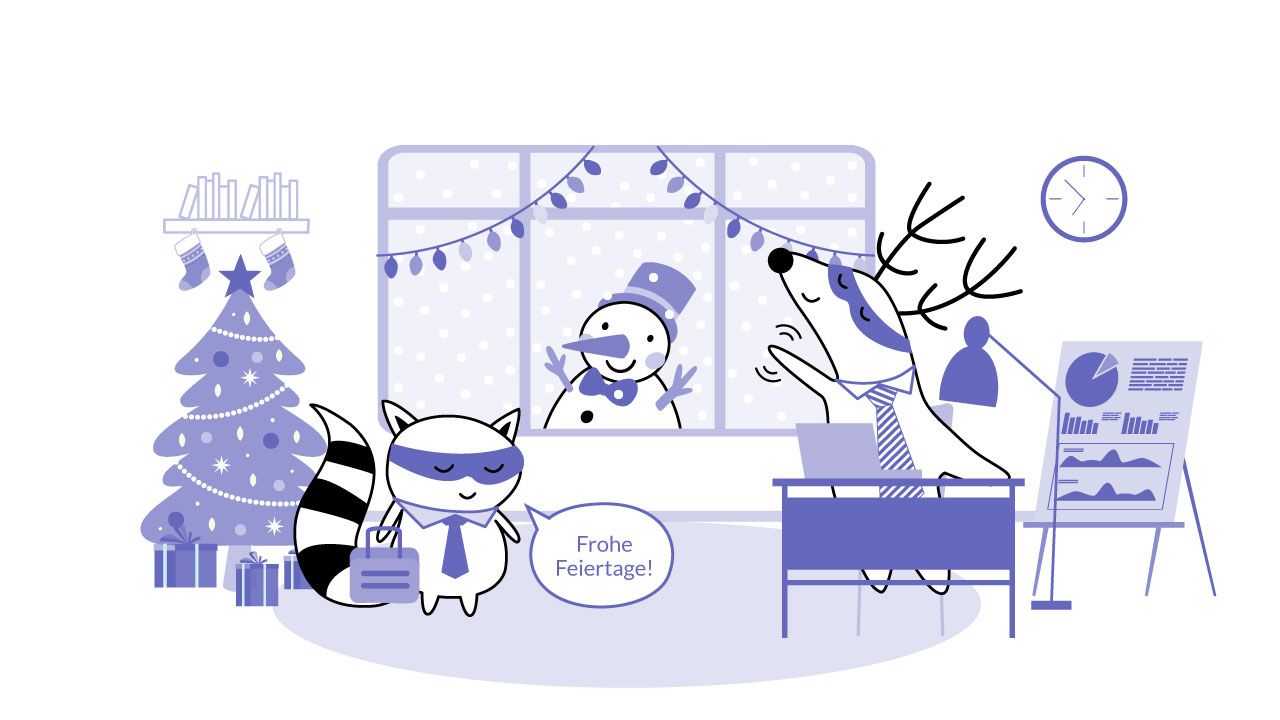
Wishes for the New Year
Because "Weihnachten" (Christmas Eve) and "das neue Jahr" (the New Year) are part of the same holiday season, Germans will often wish you a Merry Christmas and a Happy New Year when they see you the last time before going on vacation.
Instead of simply saying "Frohe Weihnachten," they will most likely say "Frohe Weihnachten und ein frohes neues Jahr," which translates as "Merry Christmas and a Happy New Year." There is also the short version, "Ein frohes neues!"
German
English
Frohe Weihnachten und ein frohes neues Jahr!
Merry Christmas and a Happy New Year!
Personal Wishes For New Year
The phrase "Ein frohes Neues Jahr" (happy New Year) is a standard greeting on Silvester (New Year’s Day) in Germany, but the sentence and its meaning can be modified by changing the adjective "frohes." Personal greetings are usually the best New Year's wishes, so be creative!
German
English
Ein frohes Neues Jahr!
Happy New Year!
As an example, you could say "ein glückliches neues Jahr," which translates as "a lucky New Year" or also "ein gesundes neues Jahr," which means "a healthy New Year."
German
English
Ein glückliches neues Jahr!
A lucky New Year
Ein gesundes neues Jahr!
A healthy New Year
A Funny New Year's Wish
There are many more New Year's greetings, but the most well-known one, aside from "frohes neues Jahr" (happy New Year), is "guten Rutsch!" The greeting literally means "a good slide" in English, but the meaning is "a good start to the new year."
German
English
guten Rutsch!
"a good slide"
Nevertheless, because Germany is often covered in snow in December, people associate the greeting with an actual slide. That is why you will see that joke used in a lot of advertisements.
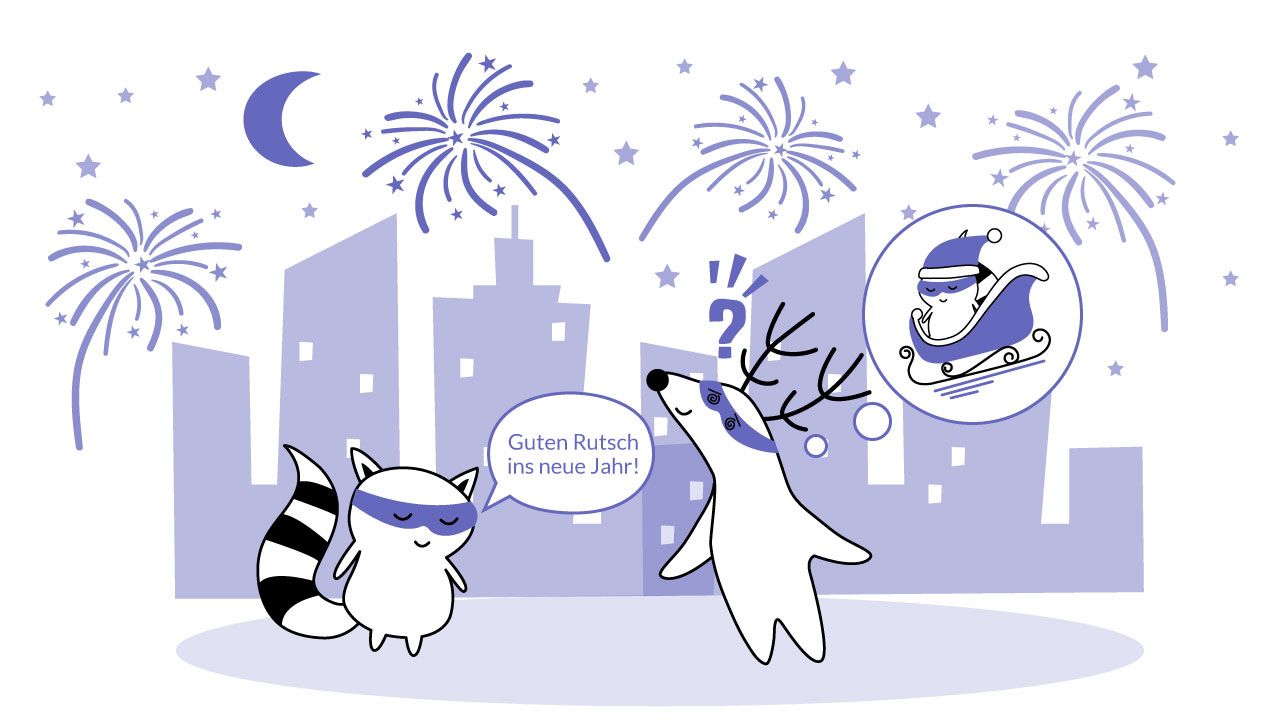
German Christmas Traditions and Vocabulary
As explained previously, Christmas in Germany is rich in traditions. It's not just about the "Weihnachtsfest" (Christmas Eve) in Germany on December 24th. There is a whole Christmas season where a variety of events take place.
German
English
Weihnachtsfest
Christmas Eve
You can divide the Christmas holiday season among Germany into three phases. "Adventszeit" begins on December 1st and lasts until the "Weihnachtsfest" (Christmas Eve) from December 24th to December 26th. Finally, on the night of December 31st, there is New Year's Eve.
How Germans Prepare for Christmas - "die Adventszeit"
If you have the opportunity to live in Germany during the winter, you will notice a difference as December approaches. The period preceding the Christmas holiday is known as "Adventszeit," and the country begins to light up as Germans start decorating.
People get together to bake Christmas cookies, put up Christmas decorations and Christmas lights, and almost every German has an "Adventskalender," a calendar with a small gift every day. This gift could be chocolate or a lovely poem for the day if the calendar is store-bought. It could be anything if someone made one just for you, and many people prefer making Advent calendars for their loved ones themselves.
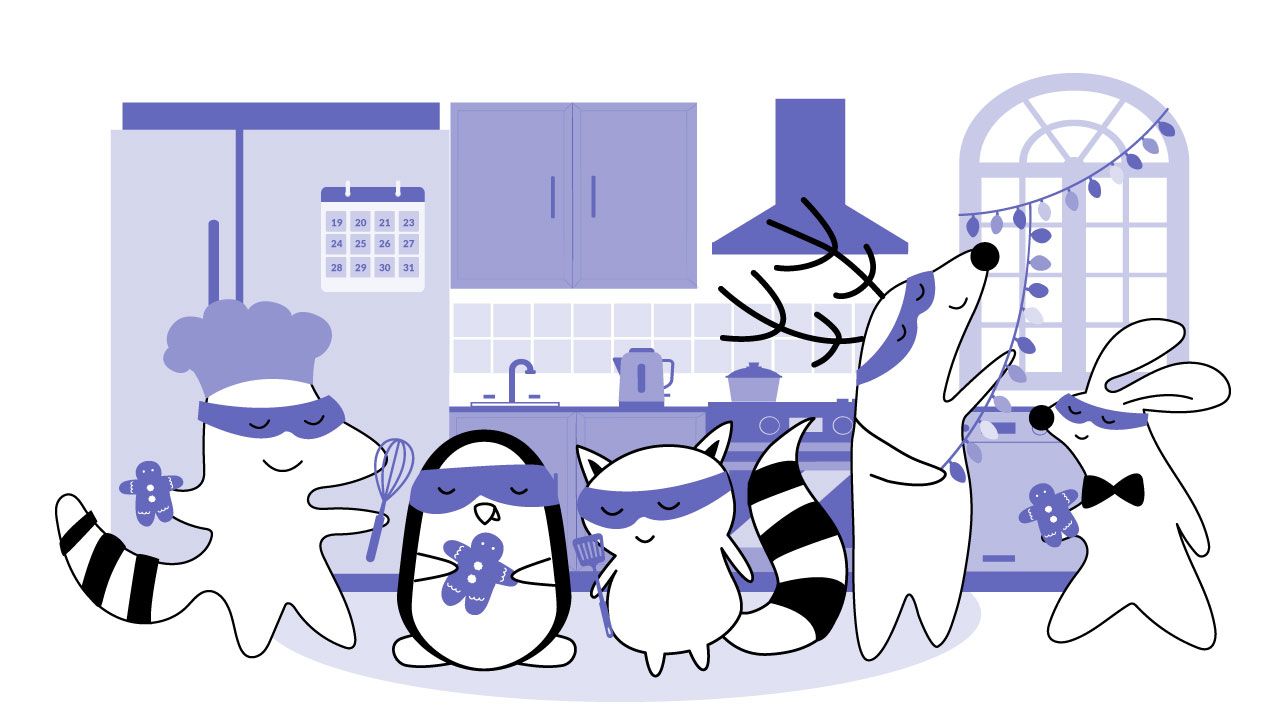
People's homes will also have an "Adventskranz" (advent wreath), where they will light a candle for each of the four Advent weekends before December 24th.
German
English
Adventszeit
Advent season
Adventskalender
Advent calendar
Adventskranz
Advent wreath
During the preparation period, Germans also buy Christmas trees (Ein Weihnachtsbaum) - just like in the US, they are the staple of the household during this special time. Nevertheless, unlike Americans, German people prefer to decorate their tress in a minimalistic manner.
Last but not least, there is a Christmas market in almost every city. While smaller towns only have them open on weekends, in larger cities they are open every day, and there are usually several Christmas markets in one city.
Why Go to Christmas Markets?
Winter in Germany is typically cold for a long time, and the weeks preceding the first snowfall can be difficult due to the dark and short days. Lighting up the streets and homes, as well as having Christmas markets, can help people get through the winter.
When the Christmas market opens, the Germans can't wait to finish their work and go to the market for a "Glühwein" (mulled wine) and a "Bratwurst" (sausage). It is a gathering place where you can meet locals, try traditional food and mulled wine, shop for local goods (such as Christmas ornaments, for example), and practice German Christmas greetings.
Use the season's greetings we showed you above to speak with the locals. You can use them especially as a farewell, by saying "Fröhliche Weihnachten," "ein frohes Fest," or "frohe Feiertage" (happy holidays) to people before you leave.
"Santa Claus" is Known as "der Nikolaus" in Germany
Santa Claus arrives in Germany on December 6th as a taste of what’s to come on December 24th. The German translation for "Santa Claus" is "Nikolaus." Many families have their traditions for this day, but this is what typically happens:
Children clean their shoes and place them in front of the stove, hoping that "Nikolaus" will come down the chimney and leave small gifts inside. Germans celebrate this day, but the arrival of the "Christkind" (Christ child) on December 24th is more important for them.
German
English
Nikolaus
Saint Nicholas / Santa Claus
Christkind
Christ child
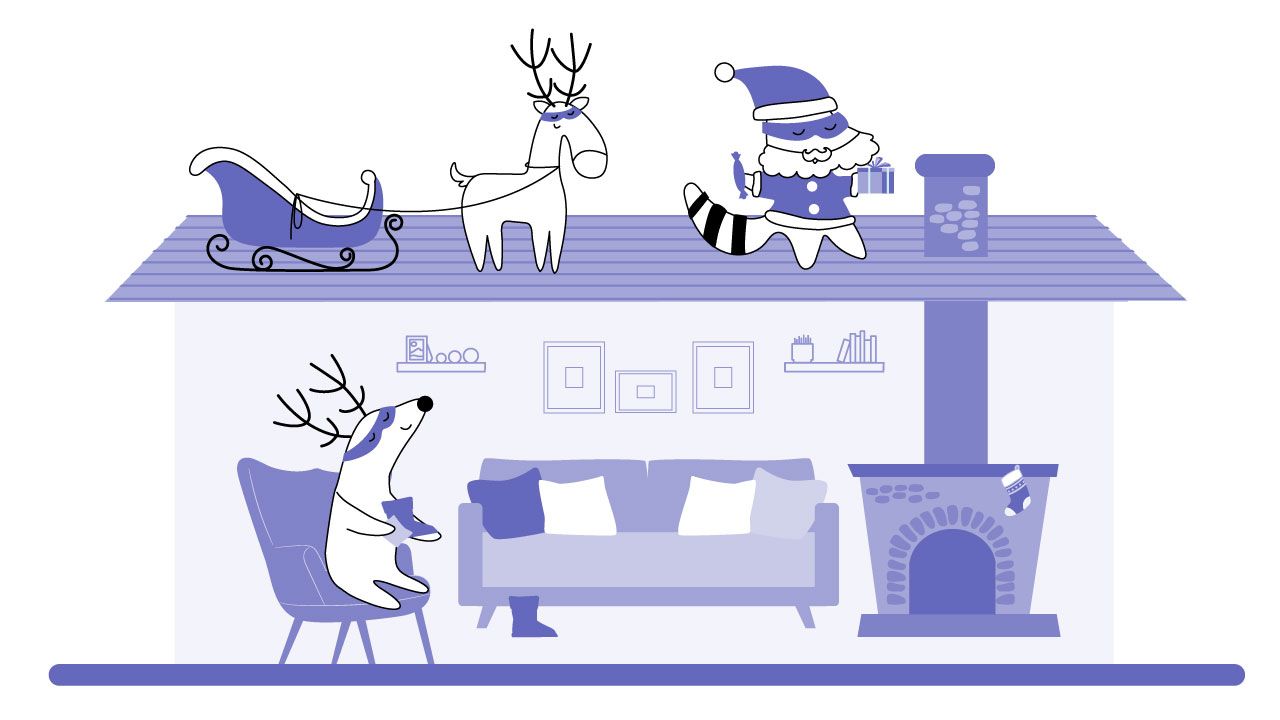
The German Christmas Eve and Christmas Day
Christmas Eve (Heiligabend) is on the 24th of December, just as everywhere else. Most people spend this day with their immediate relatives and meet up with extended family or friends on the following days.
If you have the opportunity to participate in a German Christmas celebration with your family or your friend’s family, you will most likely spend the day decorating a Christmas tree, eating cookies, and preparing dinner, which is the most important time of the day.
After dinner, which traditionally includes a "Gans" (goose) but can be different depending on the family, people exchange best wishes for Christmas, and the children receive gifts from the "Christkind" (Christ child), which usually go beneath the Christmas tree.
Of course, the adults have gifts for each other as well. Even so, the children are usually very excited about them because they had prepared a "Wunschliste" (wish list) before, in which they expressed all of their "Wünsche" (wishes) to the "Christkind."
German
English
Wunschliste
wish list
Wünsche
wishes
When it comes to Christmas Day (Weihnachtstag), there are two of them in Germany, celebrated on 25th and 26th of December. The first one is called Erster Weihnachtstag (first Christmas Day), and the second - Zweiter Weihnachtstag (second Christmas Day). During both of them, it's a tradition to visit your family and friends and exchange presents.
Ready to Celebrate a German Christmas?
We hope that we have shown you that Christmastime is a magical time in Germany and that the "Weihnachtsfest" is one of the most important feasts for Germans. Because there are so many traditions and events in December, it is an excellent time to meet locals, learn about their culture, and practice your German.
If you already live in Germany, enjoy the Christmas market after work and use the greetings we showed you above, such as "Frohe Festtage," to say goodbye to your colleagues before spending your free time with family or friends.
Learning German is easier when you have fun while practicing, and a beautiful setting like Christmas provides an excellent opportunity! If you need more guidance, check out the Langster language app to advance your German language skills!






